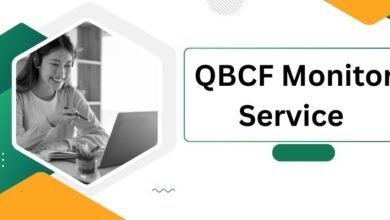Building Stronger Bonds: The Power of 5HR01 Employment Relationship Management

Introduction
In the dynamic landscape of modern workplaces, fostering strong bonds between employers and employees is crucial. “Building Stronger Bonds: The Power of 5HR01 Employment Relationship Management” explores the significance of nurturing healthy relationships within organizations. By delving into various aspects of employee relationship management, this article aims to provide insights and strategies for cultivating a harmonious work environment.
Read for: 5HR01 Employment Relationship Management
Understanding 5HR01 Employment Relationship
Employment relationship management encompasses the interactions between employers and employees throughout the tenure of employment. These interactions influence the overall work environment, employee satisfaction, and organizational success. Recognizing the nuances of this relationship is fundamental for effective management.
Importance of 5HR01 Employment Relationship
The 5HR01 Employment Relationship model emphasizes the holistic approach to managing employee relations, encompassing aspects such as trust, communication, and mutual respect. By prioritizing these elements, organizations can create a conducive environment where employees feel valued and motivated to contribute their best.
Benefits of Building Stronger Bonds
Strengthening the bonds between employers and employees yields multifaceted benefits, ultimately driving organizational growth and success.
Enhanced Productivity and Employee Satisfaction
When employees feel connected to their organization and colleagues, they are more likely to be engaged and motivated. This heightened engagement translates into increased productivity, as employees are driven to excel in their roles. Additionally, strong relationships foster a sense of belonging and job satisfaction among employees, reducing turnover rates and enhancing retention.
Challenges in Employee Relationship Management
Despite the numerous benefits, managing employee relationships comes with its set of challenges that organizations must navigate effectively.
Addressing Conflicts and Miscommunication
Conflicts and miscommunication can arise in any workplace setting, posing significant obstacles to relationship management. Proactive measures, such as establishing clear communication channels and fostering a culture of transparency, are essential for resolving conflicts and mitigating misunderstandings.
Strategies for Effective Relationship Management
Navigating the complexities of employee relationships requires a strategic approach and a commitment to continuous improvement.
Communication and Feedback
Open and honest communication lays the foundation for strong relationships within the workplace. Employers should prioritize regular feedback sessions, where both parties can share their perspectives and address any concerns constructively. Additionally, fostering a culture of transparency fosters trust and strengthens bonds between employers and employees.
Implementing 5HR01 Relationship Management
Embracing the principles of the 5HR01 model requires a comprehensive approach that integrates tools and technologies to facilitate effective relationship building.
Tools and Technologies for Effective Relationship Building
From employee engagement platforms to feedback management systems, organizations can leverage a myriad of tools and technologies to streamline relationship management processes. These tools not only enhance communication and collaboration but also provide valuable insights into employee sentiment and engagement levels.
Case Studies
Examining real-world examples of successful implementation can offer valuable insights into the effectiveness of relationship management strategies.
Successful Implementation Examples
Case studies highlighting organizations that have excelled in fostering strong bonds with their employees serve as inspiration for others. By analyzing these success stories, organizations can glean actionable insights and tailor their approach to suit their unique needs and challenges.
FAQs
How can organizations measure the effectiveness of their relationship management efforts?
Organizations can gauge the effectiveness of their relationship management efforts through various metrics, such as employee satisfaction surveys, retention rates, and productivity levels. Additionally, soliciting feedback directly from employees provides valuable insights into areas for improvement.
What role does leadership play in fostering strong employee relationships?
Leadership plays a pivotal role in setting the tone for organizational culture and fostering positive relationships within the workplace. Effective leaders prioritize communication, transparency, and empathy, creating an environment where employees feel valued and supported.
How can organizations address conflicts between employees?
Addressing conflicts between employees requires a proactive approach that emphasizes open communication and conflict resolution skills. Encouraging dialogue, actively listening to all parties involved, and seeking mutually beneficial solutions are key steps in resolving conflicts effectively.
How can organizations promote collaboration and teamwork among employees?
Promoting collaboration and teamwork requires fostering a culture of inclusivity and trust, where employees feel empowered to share ideas and collaborate on projects. Providing opportunities for team-building activities, cross-functional projects, and recognition of collaborative efforts can further enhance teamwork within the organization.
What role do HR professionals play in relationship management?
HR professionals serve as facilitators and mediators in relationship management, ensuring that policies and practices align with the organization’s values and goals. They play a crucial role in fostering positive employee experiences, addressing concerns, and promoting a culture of fairness and equity.
How can organizations adapt their relationship management strategies to remote work environments?
Adapting relationship management strategies to remote work environments requires leveraging digital communication tools, establishing regular check-ins, and prioritizing virtual team-building activities. Maintaining open lines of communication and fostering a sense of community despite physical distance are essential for nurturing strong bonds among remote teams.
Conclusion
“Building Stronger Bonds: The Power of 5HR01 Employment Relationship Management” underscores the importance of nurturing healthy relationships within organizations. By prioritizing communication, trust, and collaboration, organizations can foster a positive work environment where employees feel valued and motivated to contribute their best. Embracing the principles of the 5HR01 model and leveraging effective relationship management strategies are key steps towards achieving organizational success.



